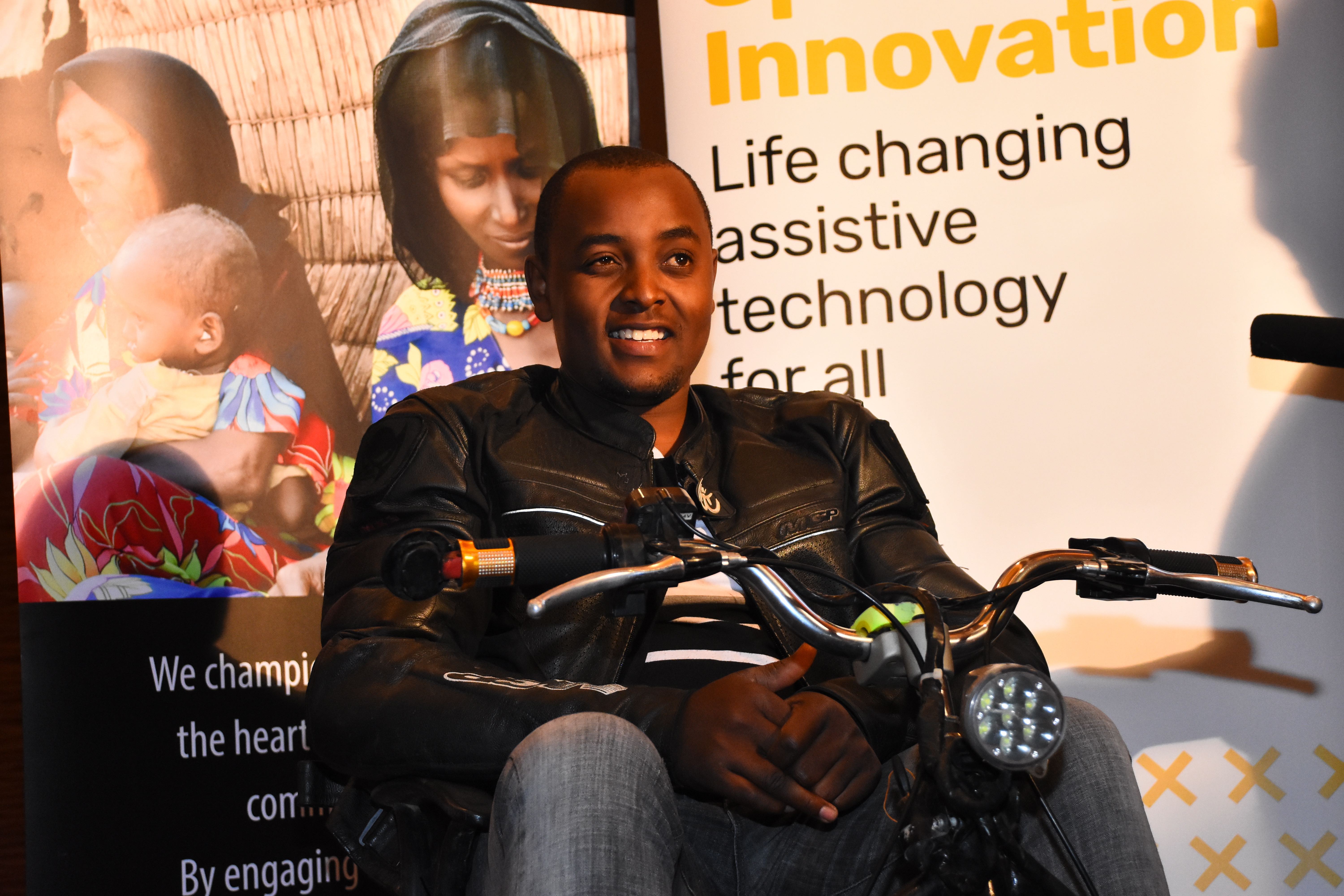Innovate Now, Africa’s first Assistive Technology Accelerator announces KES2M Prize for First Winner
Innovate Now has selected its first winner as part of the Global Disability Innovation Hub’s Assistive Technology AT2030 Programme
Lincoln Wamae, Founder of Lincell Technology has landed a USD20K (Approx. KES2M) cash prize from Innovate Now Accelerator Program alongside 3 months dedicated support to get to scale, the company’s innovation - electric personal mobility product - that aids persons with disabilities.
The winner was announced during the virtual Demo Day of Innovate Now where five finalists in Cohort 1 pitched their businesses and products to a panel of judges. This Assistive Technology Accelerator is implemented by Amref Enterprises Limited (AEL) and Global Disability Innovation Hub, alongside local ecosystem partners and it is part of the UK aid-funded AT2030 Programme.
The finalists have undergone an intensive 6 months acceleration program giving them exposure to international investors and opportunities to co-design and test with persons with disabilities. The Innovate Now Live Labs network was key to validate ideas and products. During the virtual Demo Day, the finalists demonstrated Rapid Assistive Technology testing and feedback, showcasing dynamic community-based solutions to global challenges. Users of the innovations were at the heart of the product and service development.
The five finalists were all highly praised by the Judges: "Involving people with disability at every stage of the innovations is a sure plan to break discriminative barriers that limit the potential of many. I was glad to note all the projects had a strong user-centred approach to their product development. Congratulations to all the Innovate Now Cohort 1 finalists, especially Linccell Technology for the overall win," noted Josephine Gitonga, Social Development Officer, DFID now FCDO.
Linccell Technology is a startup that is leading in the electric personal mobility industry in Kenya and putting wheelchair users at the front of this revolution. The company has designed and tested for persons with disabilities, wheelchairs that can withstand the toughest off-road conditions in Africa, as well as convenient indoor use. So far, Lincell has sold more than a dozen wheelchairs in Kenya and aims to expand their offer into the Kenyan marketplace through the prize money and enhanced support package.
"Innovate Now is an amazing program aimed at helping ventures develop assistive technologies that are not only groundbreaking, but homemade hence customized with the local knowledge, thus lowering costs for persons with disabilities, most of whom are poor. We are happy to see Innovate Now support these ideas towards becoming viable commercial entities. Congratulations to all the 5 ventures that just graduated from Innovate Now Cohort 1. Special congratulations to Lincoln Wamae for the emerging overall winner for Cohort 1. I trust that the USD20,000 product development and market access grant and further mentorship will help Linccell Technology establish into a leading wheelchair producer for Africa’’ observed Senator Isaac Mwaura, Chair of the Innovate Now Board.
Innovate Now is part of the UK aid-funded AT2030 Programme and is Africa’s first Assistive Technology Innovation Ecosystem and Start-up Accelerator. The program will support 60 start-ups in total, a quarter of which will track to scale during the next three years.
Jane Marriott, British High Commissioner commented: “The UK is committed to ensuring disAbility inclusion is at the heart of all our work. We are delighted to be trailblazers in the Assistive Technology acceleration programme in Africa, through the AT2030 programme. We will continue to work with the Government of Kenya and the private sector to help change the way businesses and citizens engage people with disabilities.”
With statistics showing that close to 1 billion people globally do not have access to Assistive Technology and the gap is likely to double by 2050, the Accelerator Program seeks to close the gap that exists between persons with disabilities and their access to assistive technologies.
BBC article featuring Lincoln before joining the Innovate Now cohort
